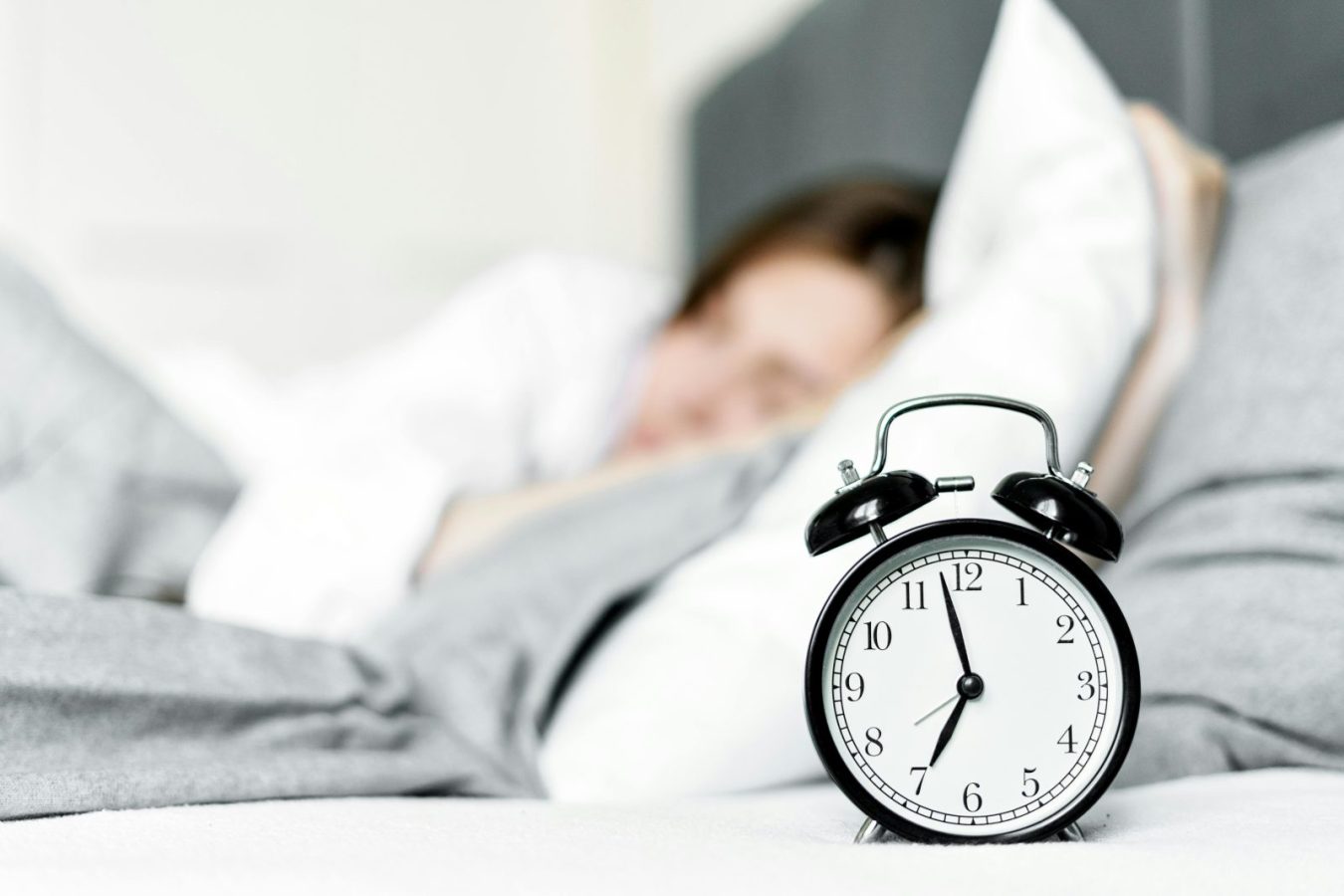The short answer to why do I wake up tired: your sleep is fragmented or mis-timed by apnea, stress, late caffeine or alcohol, or an irregular sleep window. Fix the basics for two weeks, then check health factors if fatigue stays.
- Keep one sleep window daily (bed and wake at the same time).
- Cut caffeine after lunch and finish alcohol 3+ hours before bed.
- Get morning light, cool and dark room, and a protein breakfast.
Sources: Harvard Health: Sleep apnea · Mayo Clinic: Sleep hygiene · NIH/NCBI: Caffeine pharmacology
If you keep asking yourself, why do I wake up tired, you are not alone. Many people go to bed hoping for a fresh start and still open their eyes feeling foggy and unmotivated. Morning fatigue is not only about how long you sleep. It is about sleep quality, timing, habits, and health. In this guide, we break down the real reasons you wake up drained and the exact steps that help you feel alert again. For more strategies after 40, see How to Improve Sleep After 40.
What are the most common reasons I wake up tired?
Direct answer: poor sleep quality, sleep disorders, stress, hormonal and metabolic issues, and lifestyle traps.
Poor sleep quality (not just sleep length)
Seven or eight hours in bed do not guarantee good sleep. Frequent awakenings, overheating, noise, or alcohol close to bedtime fragment the night. Your brain spends less time in deep and REM sleep, so you wake up unrefreshed. If you ask why do I wake up tired despite “enough” hours, fragmented sleep is a prime suspect.
Sleep disorders: apnea and insomnia
Obstructive sleep apnea causes repeated pauses in breathing at night. You may snore, gasp, or wake with a dry mouth and a dull headache. Insomnia keeps you from falling asleep or staying asleep. Both reduce sleep quality and make mornings feel heavy. If your partner notices snoring or you are chronically sleepless, speak with a clinician.
Stress and an overloaded mind
Racing thoughts, late-night work, and doom-scrolling keep the brain alert after lights out. Even if you fall asleep, your nervous system stays “on”, which shortens deep sleep. You wake up wired yet tired.
Hormonal and metabolic factors
Shifts in cortisol, thyroid hormones, or sex hormones blunt morning energy. Iron or B12 deficiency can do the same. If fatigue persists for weeks despite solid sleep habits, basic blood tests are worth it.
Hidden lifestyle traps
- Late caffeine: afternoon coffee lingers into the night.
- Alcohol close to bedtime: helps you doze off but fragments sleep later.
- Heavy dinners: reflux and bloating disrupt rest.
- Erratic bedtimes: your body clock cannot predict when to power down.
- Low movement: sedentary days make it harder to feel sleepy at night.

What causes of morning fatigue can I fix this week?
Direct answer: align your sleep window, optimize the room, cut caffeine after lunch, rethink alcohol, move daily, and front-load dinner.
Reset your sleep window
Go to bed and wake up at the same time every day, weekends included. Choose a window you can keep. If late nights are your pattern, move bedtime 15–20 minutes earlier every three nights until mornings feel easier.
Optimize the room
- Cooler is better. Use breathable bedding.
- Block light with blackout curtains or a sleep mask.
- Reduce noise with white noise, a fan, or earplugs.
- Park your phone away from the bed.
Cut caffeine after lunch
Caffeine’s half-life is long. That 4 p.m. espresso can still be in your system at 10 p.m. Switch to water or herbal tea after midday. Taper over a week if headaches hit.
Rethink alcohol
Alcohol sedates you but shatters the second half of the night. Limit to one drink and finish it at least three hours before bed. See Mayo Clinic guidance.
Front-load dinner and go lighter
Large, late meals trigger reflux and restless sleep. Try a balanced dinner 3–4 hours before bed. If you are hungry later, choose a small protein snack.
Move daily (but not right before bed)
Exercise deepens sleep pressure. Aim for 20–40 minutes of activity most days. Finish intense sessions at least three hours before bedtime.
What morning strategies actually work?
Direct answer: light exposure first, hydration before caffeine, protein at breakfast, and five minutes of mobility.
Light first, phone later
Open the curtains the moment you wake or step outside for a few minutes. Natural light anchors your body clock and helps you produce melatonin earlier that night.
Hydrate before caffeine
Your body wakes mildly dehydrated. Drink water first, then coffee or tea.
Protein at breakfast
Swap sugary pastries for a protein-forward meal: eggs, Greek yogurt, cottage cheese, or a shake with fruit and oats.
Five-minute mobility
Gentle movement tells your nervous system it is time to be awake. A short walk often answers the daily question of why do I wake up tired better than a second coffee.

When should I consider underlying health issues?
Direct answer: if two steady weeks fail or red flags appear, screen for apnea, check basic labs, and assess mood.
Screen for sleep apnea
Loud snoring, gasping, or unrefreshing sleep are red flags. Home sleep tests are easy to arrange and change outcomes if treatment is needed. See Harvard Health overview.
Get basic labs
Ask about ferritin, vitamin B12, vitamin D, a thyroid panel, and fasting glucose. Correcting deficiency can transform mornings.
Mood and anxiety
Depression and anxiety often show up as poor sleep and low morning energy. If your mood is flat or worry keeps you up, speak with a professional.
What nutrition and supplements support better mornings?
Direct answer: whole foods first, magnesium-rich options, omega-3s, and targeted supplements only if deficient.
Build a sleep-friendly plate
- Prioritize whole foods: vegetables, fruit, legumes, whole grains, lean protein.
- Include magnesium-rich foods: pumpkin seeds, almonds, spinach, dark chocolate.
- Get omega-3s from fatty fish twice per week or use fish oil if you do not eat fish.
Helpful supplements (use wisely)
- Magnesium glycinate in the evening may relax muscles and support deeper sleep.
- Vitamin D and B12 help if you are deficient. Test, do not guess.
- Melatonin helps with jet lag or shifting schedules. Use low doses short term.
- Protein powder at breakfast can stabilize energy if appetite is low.
Supplements support the plan. They are not the plan.
How can I run a two-week reset plan?
Direct answer: follow seven simple steps daily for 14 days and track a 1–10 morning energy score.
- Pick a steady sleep window you can keep for 14 days.
- Cut caffeine after lunch. Finish alcohol 3+ hours before bed.
- Cool, dark, quiet bedroom. Phone parked away from the bed.
- Twenty to forty minutes of daily movement. Finish hard workouts early.
- Morning light within 30 minutes of waking. Hydrate before caffeine.
- Protein-rich breakfast. Reduce sugar spikes before noon.
- Track your energy from 1–10 each morning. Watch trends.
My Personal Experience
I went through a month of dragging mornings last year. I slept “eight hours”, but I still woke up dull. The turning point was boring. I made bedtime and wake time non-negotiable for two weeks. I moved my last coffee to 11 a.m., ate dinner earlier, and swapped my phone for a paperback after 9 p.m. The first three days were rough. By day five I woke before my alarm. Morning light on the balcony for five minutes was the surprise win. If a late night slips in, I return to that checklist and the next morning already feels better.
Bottom Line
If you are stuck in the loop of asking why do I wake up tired, zoom in on quality, not only quantity. Clean up the evening, anchor your sleep window, get light early, and fuel with protein and water in the morning. If fatigue lingers after two steady weeks, or if you snore loudly or wake gasping, check in with a professional.
Related Articles
- Sleep After 40: What’s Normal and What’s a Problem
- Bad Sleep After 40: Causes and What to Do
- How to Improve Sleep After 40
- Morning Fatigue Causes: Why You Wake Up Tired and How to Fix It
- How to Stop Waking Up Tired
Ready to improve your life after 40?
Browse our best guides and start today.

